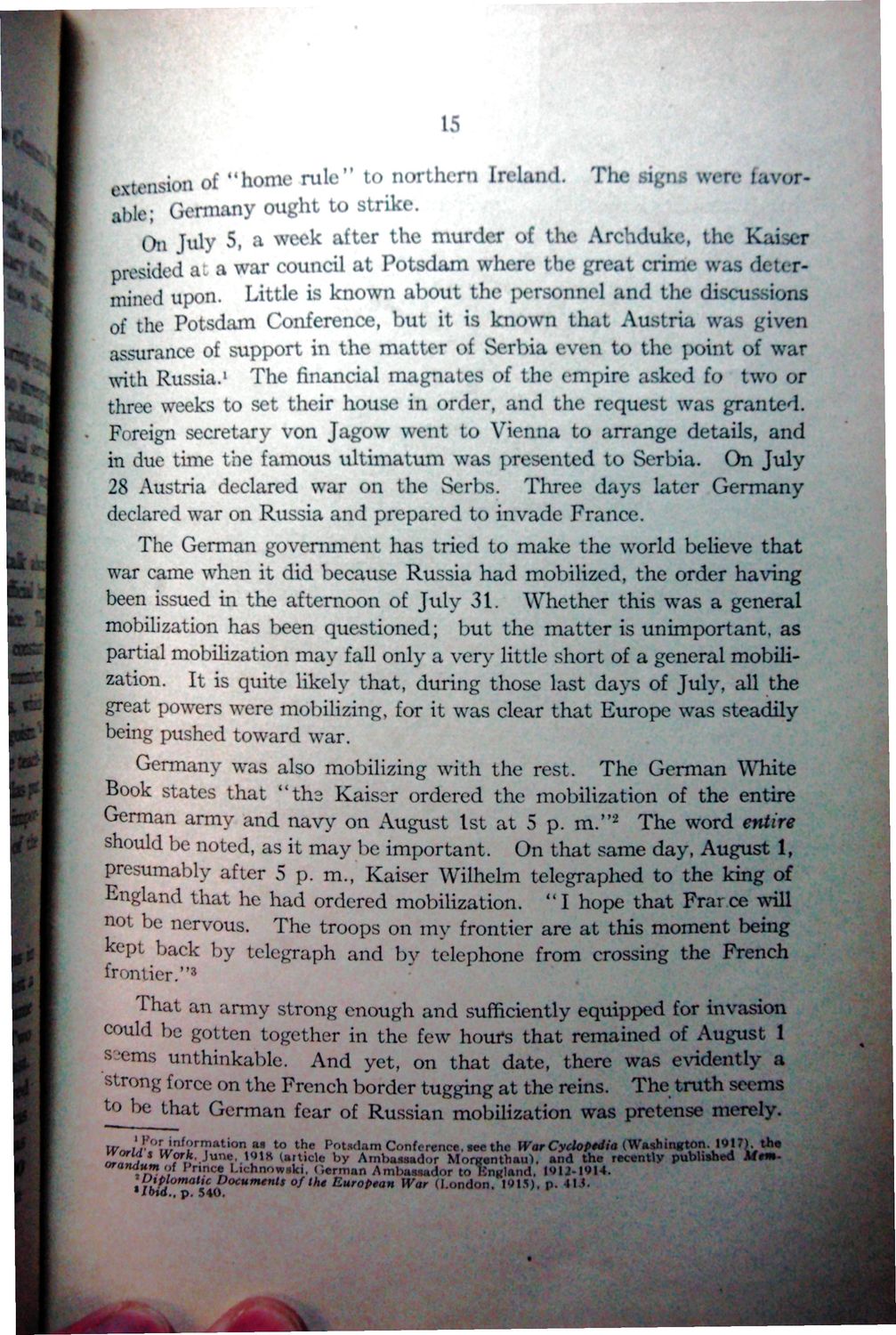| |
| |
Caption: War Publications - WWI Compilation 1923 - Article 15
This is a reduced-resolution page image for fast online browsing.

EXTRACTED TEXT FROM PAGE:
15 ^tonsion of "home rule" to northern Inland. The igof were tavofa blc; Germany ought to strike. On July 5, a week after the murder of the Archduk. . the Kaiser presided at a war council at Potsdam where the gltat crime was determined upon. Little is known about the personnel and the discussions of the Potsdam Conference, but it is known that Austria was given assurance of support in the matter of Serbia even to the point of war 1 with Russia. The financial magnates of the empire asked fo two or thre< gn secretary von J in due time the famous ultimatum was presented to Serbia. On July 28 Austria declared war on the Serbs. Three days later Germany declared war on Russia and prepared to invade France. The German government has tried to make the world believe that war came when it did because Russia had mobilized, the order having been issued in the afternoon of July 31. Whether this was a general mobilization has been questioned; but the matter is unimportant, as partial mobilization may fall only a very little short of a general mobilization. It is quite likely that, during those last days of July, all the great powers were mobilizing, for it was clear that Europe was steadily being pushed toward war. Germany was also mobilizing with the rest. The German White Book states that "the Kaiser ordered the mobilization of the entire 2 German army and navy on August 1st at 5 p. m." The word entire should be noted, as it may be important. On that same day, August 1, presumably after 5 p. m., Kaiser Wilhelm telegraphed to the king of England that he had ordered mobilization. " I hope that Frarce will not be nervous. The troops on my frontier are at this moment being kept back by telegraph and by telephone from crossing the French frontier/* That an army strong enough and sufficiently equipped for invasion could be gotten together in the few hours that remained of August 1 seems unthinkable. And yet, on that date, there was evidently a strong force on the French border tugging at the reins. The truth seems to be that German fear of Russian mobilization was pretense merely. a (Washington. 1017) th« eoently published Af#*»-
| |